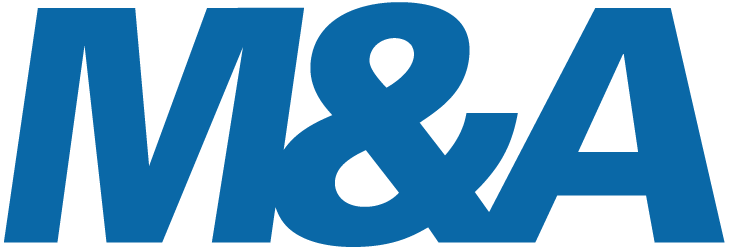Pitch Best Small Cap Deal 2020: Mirage Retail Group – BCC Holding

Bekijk alle pitches & stem direct
| Name of the deal | Mirage Retail Group acquires BCC Holding from FNac Darty |
| Date | 28 september 2020 |
| Published value | € 5 – 50 million |
| Buyer(s) | Mirage Retail Group |
| Target | BCC Holding |
| Seller | Fnac Darty |
Involved firms and advisors
Involved firms and advisors buy side:
ABN AMRO (M&A Advisory), Atlas Fiscalisten (Tax Advisory), KPMG (Financial Due Diligence), Accuracy (Financial Due Diligence), Stek Advocaten, Workx Advocaten
Involved firms and advisors target:
N/a
Involved firms and advisors sell side:
Loyens & Loeff (Tax Advisory and Legal Advisory Corporate M&A), BNP Paribas, EY
Pitch
Brief description deal / Deal outline
Mirage Retail Group entered into exclusive negotiations with Fnac Darty for the envisaged acquisition of BCC on 28 September 2020. The acquisition further strengthens the company’s leading market position in the Dutch High Street.
Why should this deal win the Award for Best Small Cap Deal 2020?
This highly visible transaction in the challenged Dutch non-food retail sector should win because of the significant impact on non-food retailing in the Dutch High street, the complex financing structure that enabled the deal and the seamless execution despite COVID-19.
Dutch High Street
Mirage Retail Group and BCC are well-established and iconic non-food retail brands that have a major presence in the Dutch High Street. The vast store footprint of both companies illustrates their enormous influence and relevance on the Dutch High Street, as Mirage Retail Group counts over 550 stores and BCC operates 62 stores, all in the Netherlands. Mirage Retail Group and BCC operate in a sector that is challenged by the online channel, falling high street footfall and COVID-19. In this challenging environment there are still entrepreneurs that aim to ensure that household products are available in stores in an attractive and safe environment. Michiel Witteveen with his Mirage Retail Group is an investor that continues to believe in the value of offline retail combined with smart omnichannel non-food retail offerings.
This transaction paves the way for new Dutch ownership of BCC and a promising new
future as a banner under the Mirage Retail Group, creating a strong Dutch non-food retail player (with c. EUR 1,000m revenue) that is well positioned to weather the competition from online retailers. More specifically, the combination positions Mirage Retail Group as the go-to store for household and home (electronic) appliances in the Netherlands. Via the launch of new store initiatives, more convenience is brought to customers, thereby providing relevance to the Dutch population and bringing them back to the High Street for their shopping needs.
Financing structure
Given the financial challenges that BCC faced over the last years, and the positive path of recovery at Mirage Retail Group, a comprehensive financing structure was arranged that satisfied both buyer and seller to consummate a transaction, despite the cautious stance of lenders, credit insurers and the likes on non-food retail due to COVID-19. As a seller, Fnac Darty wanted to minimise risk as soon as possible after signing, whilst Mirage Retail Group pushed for a solution that maximizes its optionality with respect to available liquidity using inventory as collateral. The decision to jointly approach BCC’s core suppliers marked the start of an efficient and valuable cooperation between the new combination and its suppliers.
Execution during COVID-19
Mirage Retail Group and ABN AMRO created a joint deal team in April 2020, in the midst of the COVID-19 intelligent lockdown. Despite the sole opportunity to engage in digital discussions with each other, Mirage Retail Group and ABN AMRO managed to swiftly put a well-considered Non-Binding Offer on the table that allowed us to enter the next phase of this competitive auction process (that was conducted by BNPP). This seamless, digital kick-off set the precedent for the entire project, which – despite any form of face-to face contact between Mirage Retail Group, ABN AMRO, Stek Advocaten, Accuracy and Workx Advocaten – turned out very well, showing the possibilities and advances of a digital way of working. Similarly, interactions between the buy-side and sell-side were entertained digital-only, a 1st in many ways. Given the cross-border nature of the transaction, the digital push on the back of COVID-19 often proved a convenient way to accelerate discussions.
Deal rationale
MRG is the former Blokker Holding BV (Blokker and Big Bazar) which was acquired by its current CEO (Michiel Witteveen) in a management buy-out from the Family Blokker in April 2019. Following the acquisition, MRG started executing its long-term growth plan to create the leading Dutch Home Goods platform with EUR 1bn sales via expansion of the store footprint, margin improvement and an active M&A strategy. BCC perfectly matches MRG’s strategy by bringing new formulas and product market combinations, adding stores (that potentially can be relabelled) and bringing value through operational leverage.
What is the impact of this deal for the company?
Further strengthen its market position on the Dutch High Street. Furthermore, the transaction makes MRG the go-to store for household and home (electronic) appliances in the Netherlands.
What is the impact of this deal for the direct stakeholders?
The deal unlocks a vast amount of synergies through which both seller and buyer and other stakeholders can benefit. The retention of (store) employees is safeguarded through the launch of new store initiatives (e.g. inner city stores, Click & Collect). Partners and suppliers profit from a strengthened Dutch non-food retail player. Customers gain from more convenience through the combination of stores and an improved digital offering. Fnac Darty benefits from an increased focus on its core activities, whilst MRG is able to capitalise on synergies.
What is the impact of this deal on society?
The Dutch High Street faces challenging times due to fierce competition from online retailers. By combining these sizeable and iconic retail brands, a strong Dutch brick-and-mortar player is created that is well-positioned to weather online competition and safeguard the presence of a vibrant Dutch high street, under Dutch ownership.
What was most complex about this deal?
Given the cautious stance of credit insurance companies and other financial debt providers towards non-food retail due to COVID-19, a smooth and efficient transfer out of Fnac Darty’s perimeter to a new owner was of critical importance. As a seller Fnac Darty wanted to minimise risk as soon as possible after signing, whilst MRG pushed for a solution that maximizes its optionality with respect to available liquidity. Many alternatives were explored, which resulted in the decision to jointly approach BCC’s core suppliers to mark the start of an efficient and valuable cooperation between the new combination and its suppliers.









